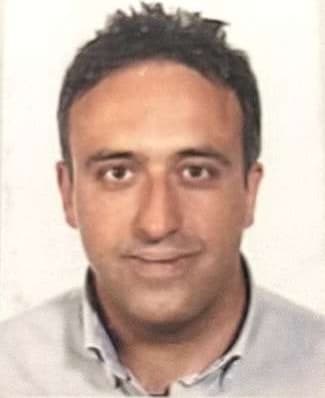Studying at the University of Verona
Here you can find information on the organisational aspects of the Programme, lecture timetables, learning activities and useful contact details for your time at the University, from enrolment to graduation.
Academic calendar
The academic calendar shows the deadlines and scheduled events that are relevant to students, teaching and technical-administrative staff of the University. Public holidays and University closures are also indicated. The academic year normally begins on 1 October each year and ends on 30 September of the following year.
Course calendar
The Academic Calendar sets out the degree programme lecture and exam timetables, as well as the relevant university closure dates..
| Period | From | To |
|---|---|---|
| I semestre (Lingue e letterature straniere) | Sep 27, 2021 | Jan 8, 2022 |
| II semestre (Lingue e letterature straniere) | Feb 14, 2022 | May 28, 2022 |
Exam calendar
Exam dates and rounds are managed by the relevant Foreign Languages and Literatures Teaching and Student Services Unit.
To view all the exam sessions available, please use the Exam dashboard on ESSE3.
If you forgot your login details or have problems logging in, please contact the relevant IT HelpDesk, or check the login details recovery web page.
Academic staff
 sara.paolini@univr.it
sara.paolini@univr.it
 daniela.spina@univr.it
daniela.spina@univr.it
Study Plan
The Study Plan includes all modules, teaching and learning activities that each student will need to undertake during their time at the University.
Please select your Study Plan based on your enrollment year.
1° Year
| Modules | Credits | TAF | SSD |
|---|
1st foreign language2nd foreign language1st foreign literature 1 LM. Forms, genres and critical approaches2nd foreign literature 1 LM. Forms, genres and critical approaches2° Year activated in the A.Y. 2022/2023
| Modules | Credits | TAF | SSD |
|---|
1st foreign literature disciplinary area2nd foreign literature disciplinary area or textual and comparative studies1st or 2nd foreign literature 2 LM. Critical methodologies and textual interpretationA philology to be chosen among the following (philology must be related to one of the chosen languages)History of the 1st or the 2nd foreign language| Modules | Credits | TAF | SSD |
|---|
1st foreign language2nd foreign language1st foreign literature 1 LM. Forms, genres and critical approaches2nd foreign literature 1 LM. Forms, genres and critical approaches| Modules | Credits | TAF | SSD |
|---|
1st foreign literature disciplinary area2nd foreign literature disciplinary area or textual and comparative studies1st or 2nd foreign literature 2 LM. Critical methodologies and textual interpretationA philology to be chosen among the following (philology must be related to one of the chosen languages)History of the 1st or the 2nd foreign language| Modules | Credits | TAF | SSD |
|---|
Legend | Type of training activity (TTA)
TAF (Type of Educational Activity) All courses and activities are classified into different types of educational activities, indicated by a letter.
New literatures in English (2022/2023)
Teaching code
4S002993
Academic staff
Coordinator
Credits
6
Language
English
Scientific Disciplinary Sector (SSD)
L-LIN/10 - ENGLISH LITERATURE
Period
II semestre (Lingue e letterature straniere) dal Feb 13, 2023 al May 27, 2023.
Learning objectives
The module, taught in English, aims at providing the students with interpretive skills and in-depth knowledge related to the main themes and theoretical issues that qualify colonial and postcolonial literature in English. This will be done through a close reading of the set texts, chosen for their representative force and analyzed in their textual dynamics, in a wide diachronic perspective that, nonetheless, fully takes into account the specifics of their contexts.The broader gaol is to stimulate the students to develop their competence in critically approaching the texts and the historical, political and cultural dynamics underlying them. At the end of the module the students will be able to: -read and interpret postcolonial literary texts by structuring ideas and concepts with argumentative skill; -comment on the texts in such a way as to demonstrate an in-depth knowledge of the theoretical debate surrounding them.
Prerequisites and basic notions
No preliminary skills are required to attend the course
Program
WRITING MIGRATION
MODULE 1 (A. Pes, 24 hrs, 4 cfu)
After introducing students to postcolonial studies and the main theoretical and critical contributions in this field, the module focuses on multiculturalism in contemporary Australian society by a close reading of the novel The Slap by Australian writer Christos Tsiolkas. Starting from the analysis of the suburban context (and the cultural meaning that suburbia has had in Australia) and of the multiethnic society deriving from a long and difficult history of migration through different generations, students’ attention will be focused on the process of construction of a transnational identity by exploring aspects like racism, social prejudice and complex attempts of integration/assimilation to a white and western national model that has been priviledged for a long time in the creation of a “White Australia”.
BIBLIOGRAPHY
Primary text:
- C. Tsiolkas, The Slap (2008)
Critical References:
- N. Dunlop, “Suburban Space and Multicultural Identities in Christos Tsiolkas’s The Slap”, Antipodes, 30, 1, June 2016, pp. 5-16
Additional references for non-attending students:
- Svend Erik Larsen, “Memory, Migration and Literature”, European Review, vol. 24, 4, pp. 509-522
MODULE 2 (S. Zinato, 12 hrs, 2 cfu)
Through a close reading of Tanzanian Abdulrazak Gurnah’s sixth novel, By the Sea, the 12-hour second module will deal with African illegal diaspora in Britain, the nation-state still nostalgic about its imperial past. The story of its protagonist Saleh Omar, forcibly displaced from Zanzibar and seeking refuge in England, will focus the students’ attention on the condition of the asylum seeker, on the strategies of exclusion and inclusion of the host society, on the relationship between memory, story-telling and individual perception of history, and, most of all, on Gurnah’s problematizing of postmodern discourses of displacement as inherently resistant and creative.
BIBLIOGRAPHY
Primary text:
-A. GURNAH, By the Sea (2001)
Critical References:
-S. Helff, “Illegal Diasporas and African Refugees in Abdulrazak Gurnah’s By the Sea”, Journal of Commonwealth Literature, 2009, Vol.44 (1), 67-80.
Additional references for non-attending students:
-F. Hand, “Untangling Stories and Healing Rifts: Abdulrazak’s By the Sea”, Research in African Literatures, 2010, Vol. 41 (2), 74-92.
MODULES 1 e 2
Reference text of postcolonial studies:
-T. Ashcroft, G. Griffiths, and H. Tiffin (eds.), The Empire Writes Back: Theory and Practice in Post-Colonial Literatures, Routledge, 1989: Introduction; ch.2 (Replacing language: textual Strategies in Postcolonial Writing"), ch. 5 (Replacing Theory: Postcolonial Writing and Literary Theory).
Additional references for non-attending students:
-A. Loomba, "Colonial and Postcolonial identities" (ch.2, 104-183) in ID, "Colonialism/Postcolonialism", Routledge, 1998
- R. King, J. Connell, P. White (eds.), Writing Across Worlds. Literature and Migration, Routledge, 1995: ch.1 ("Geography, Literature and Migration"), pp.1-19.
The present syllabus is valid until the exam session of Winter 2025
Bibliography
Didactic methods
The course will be taught in English.
Supplementary teaching materials (slides, images, videos, other texts, etc.) discussed or suggested in class will be made available for download from the MOODLE e-repository. These contents do not substitute but complement the readings listed in the syllabus.
Learning assessment procedures
Oral exam in English.
Students may be required to read and comment on passages taken from primary texts.
There will be no mid-term tests.
Students will have to bring their primary texts at the exam
Evaluation criteria
Student will have to demonstrate:
1) the knowledge and comprehension of texts, authors, contents and of the historical and cultural context;
2) the ability to comment/analyze the literary texts in the syllabus with the aid of class notes and in the light of the main issues dealt with in the set critical references;
3) the use of an appropriate vocabulary and the ability to personally elaborate on the themes of both modules.
Criteria for the composition of the final grade
The final grade, awarded on a 30-point scale, will result from the average of the grades obtained in the assessment of each module, on the basis of the above-listed criteria.
Exam language
Inglese/English
Type D and Type F activities
Nei piani didattici di ciascun Corso di studio è previsto l’obbligo di conseguire un certo numero di CFU di tipologia D e di tipologia F.
CFU D (attività a scelta dello studente)
I CFU D possono essere acquisiti mediante:
- insegnamenti non obbligatori nel proprio piano didattico (previa approvazione del Presidente del Collegio didattico per insegnamenti non selezionabili in autonomia)
- attività accreditate dal Collegio didattico
- competenze linguistiche (diverse o ulteriori) rispetto a quelle obbligatorie
- tirocini o stage
- TALC (competenze trasversali).
Competenze trasversali TALC
Nota bene: i corsi TALC sono riconosciuti solo come CFU D.
Il numero di CFU D va calcolato complessivamente sull’intero triennio/biennio e non è legato all'annualità.
CFU F
I CFU F sono solitamente relativi ad abilità informatiche, competenze linguistiche, stage e tirocini e ulteriori attività formative accreditate in questa tipologia dal Collegio Didattico.
Nel corso di laurea magistrale in Comparative European and Non-European Languages and Literatures sono previste le seguenti tipologie:
- 6 CFU di ulteriori attività formative (competenze linguistiche, abilità informatiche, tirocini, stage).
Le eventuali attività di stage sono finalizzate a far acquisire allo studente una conoscenza diretta in settori di particolare utilità per l’inserimento nel mondo del lavoro e per l’acquisizione di abilità specifiche d’interesse professionale.
Documents and news
-
 A.A. 2020/2021 Descrizione del percorso di formazione - Regolamento didattico del CdS
(pdf, it, 246 KB, 13/04/21)
A.A. 2020/2021 Descrizione del percorso di formazione - Regolamento didattico del CdS
(pdf, it, 246 KB, 13/04/21)
-
 IL PERCORSO VERSO L’INSEGNAMENTO PER GLI STUDENTI DELL’AREA LINGUE E LETTERATURE STRANIERE
(pdf, it, 93 KB, 13/04/21)
IL PERCORSO VERSO L’INSEGNAMENTO PER GLI STUDENTI DELL’AREA LINGUE E LETTERATURE STRANIERE
(pdf, it, 93 KB, 13/04/21)
To discover all the teaching activities accredited by the foreign teaching college click here
Career prospects
Module/Programme news
News for students
There you will find information, resources and services useful during your time at the University (Student’s exam record, your study plan on ESSE3, Distance Learning courses, university email account, office forms, administrative procedures, etc.). You can log into MyUnivr with your GIA login details: only in this way will you be able to receive notification of all the notices from your teachers and your secretariat via email and soon also via the Univr app.
Student login and resources
Gestione carriere
Attività accreditate D/F
Calendario didattico dettagliato
Competenze linguistiche (prima e seconda lingua)
Language skills
Compilazione del piano didattico
Corso di Lingua portoghese
Double degree
The University of Verona, through a network of agreements with foreign universities, offers international courses that enable students to gain a Double/Joint degree at the time of graduation. Indeed, students enrolled in a Double/Joint degree programme will be able to obtain both the degree of the University of Verona and the degree issued by the Partner University abroad - where they are expected to attend part of the programme -, in the time it normally takes to gain a common Master’s degree. The institutions concerned shall ensure that both degrees are recognised in the two countries.
Places on these programmes are limited, and admissions and any applicable grants are subject to applicants being selected in a specific Call for applications.
The latest Call for applications for Double/Joint Degrees at the University of Verona is available now!
Documents
| Title | Info File |
|---|---|
|
|
pdf, it, 316 KB, 28/09/23 |
|
|
octet-stream, it, 22 KB, 28/09/23 |
|
|
pdf, it, 520 KB, 28/09/23 |
Erasmus+ e altre esperienze all'estero
Linguistic training CLA
Percorso verso l'insegnamento
Una delle possibilità per gli studenti dopo il conseguimento della laurea magistrale è l’insegnamento nella scuola: l’Università degli Studi di Verona è tra gli enti accreditati dal MIUR per l'erogazione di corsi di formazione e aggiornamento e qualificazione delle competenze per insegnanti. Il percorso per diventare insegnante è legato alle seguenti condizioni:
1a CONDIZIONE
Il possesso della laurea magistrale o a ciclo unico, oppure diploma di II livello dell’alta formazione artistica, musicale e coreutica, oppure titolo equipollente o equiparato, coerente con le classi di concorso vigenti alla data di indizione del concorso; il futuro insegnante dovrà, inoltre, soddisfare i requisiti di accesso previsti per la classe di concorso scelta.
Per le classi di concorso:
- A-24 (Lingue e culture straniere negli istituti di istruzione secondaria di II grado) e
- A-25 (Lingua inglese e seconda lingua comunitaria nella scuola secondaria I primo grado)
sono previsti i seguenti requisiti di accesso (vedi l’allegato A al DM 259/2017):
1) 18 CFU nei settori scientifico disciplinari L-LIN/01 e/o L-LIN/02
2) 36 CFU della lingua di specializzazione scelta
3) 24 CFU della letteratura relativa alla lingua di specializzazione scelta.
I requisiti specifici delle classi di concorso A-24 e A-25 possono essere soddisfatti nell’ambito dei piani didattici o negli esami a scelta libera superati all’interno del percorso di studio universitario (Laurea Triennale e Magistrale), oppure attraverso l’iscrizione a corsi singoli.
Il requisito relativo alla lingua di specializzazione (2) è soddisfatto (sulla base degli esami previsti nel piano didattico) nell’ambito del percorso formativo che comprende una laurea triennale dell’area di Lingue e Letterature Straniere, seguita da una laurea magistrale della medesima area (qualsiasi Corso di Laurea triennale e magistrale dell’area di Lingue e Letterature Straniere).
Per verificare i requisiti relativi alla letteratura di specializzazione (3) e agli insegnamenti di linguistica che appartengono ai settori scientifico-disciplinari di L-LIN/01 e L-LIN/02 (1), invece, gli studenti sono invitati a consultare il proprio piano didattico per verificare il numero di CFU previsti nel percorso formativo.
2a CONDIZIONE
Il possesso dei 24 crediti formativi universitari o accademici acquisiti in forma curricolare, aggiuntiva o extra curricolare nelle discipline antropo-psico-pedagogiche e nelle metodologie e tecnologie didattiche, garantendo comunque il possesso di almeno 6 CFU conseguiti in ciascuno di almeno tre dei seguenti quattro ambiti disciplinari:
1) pedagogia;
2) pedagogia speciale e didattica dell’inclusione;
3) psicologia; antropologia;
4) metodologie e tecnologie didattiche.
Percorso formativo 24 CFU
Consente di acquisire uno dei requisiti di partecipazione al concorso nazionale per l’accesso al “percorso annuale di formazione iniziale e prova” su posti comuni e di sostegno, ai sensi del D.Lgs 13 aprile 2017, n. 59 come modificato dalla legge n.145 del 30/12/2018 (c. dal 792 al 796).
I settori scientifico disciplinari, gli obiettivi formativi, le modalità organizzative e gli eventuali costi sono stati stabiliti dal D.M. 10 agosto 2017, n. 616.
Per sapere quali insegnamenti della propria carriera vengano automaticamente riconosciuti si rimanda alla pagina del sito di Ateneo dedicata al percorso formativo 24 CFU.
Si consiglia agli interessati di consultare la pagina https://www.univr.it/it/i-nostri-servizi/futuri-studenti/post-laurea/formazione-degli-insegnanti in costante aggiornamento, in particolare sezione documenti in cui vengono pubblicati formulari, programmi degli insegnamenti ed elenchi di studenti ammessi.
Tra gli insegnamenti automaticamente riconosciuti nell’ambito dei 24 CFU vi sono: Insegnamento delle lingue (L-LIN/02) e Apprendimento delle lingue (L-LIN/02), previsti nel piano didattico del curriculum Linguistico-didattico del CdS di Lingue e letterature straniere (LLS).
Gli studenti immatricolati nel CdS di LLS che hanno scelto i curricula Letterario e Artistico possono comunque inserire tali insegnamenti nel piano di studi come crediti D (a scelta libera).
Gli studenti immatricolati negli altri CdS triennali del Dipartimento di Lingue e letterature straniere (Lingue e culture per il turismo e il commercio internazionale; Lingue e culture per l’editoria [a esaurimento]; Lingue e letterature per l’editoria e i media digitali) posso inserire tali insegnamenti nella propria carriera solo su eventuale autorizzazione preventiva del Presidente del Collegio Didattico (mediante Help desk).
Il soddisfacimento della 1a e 2a condizione è requisito obbligatorio per partecipare ai concorsi di abilitazione o specifici percorsi post lauream previsti dal Ministero.
Graduation
Stage e tirocini
Le attività di stage sono finalizzate a far acquisire allo studente una conoscenza diretta in settori di particolare interesse per l’inserimento nel mondo del lavoro e per l’acquisizione di abilità professionali specifiche.
Le attività di stage sono svolte sotto la diretta responsabilità di un singolo docente presso studi professionali, enti della pubblica amministrazione, aziende accreditate dall’Ateneo veronese.
I crediti maturati in seguito ad attività di stage saranno attribuiti secondo quanto disposto nel dettaglio dal “Regolamento d’Ateneo per il riconoscimento dei crediti maturati negli stage universitari” vigente.
- Tutte le informazioni in merito agli stage per futuri studenti sono disponibili alla pagina Stage e tirocini.
- Tutte le informazioni in merito agli stage per studenti iscritti sono pubblicate in MyUnivr - come fare per - stage e tirocini.
- Tutte le informazioni in merito agli stage per le aziende sono disponili alla pagina Stage e tirocini per azienze.
Ulteriori informazioni al seguente link https://www.univr.it/it/i-nostri-servizi/gestione-carriere-studenti-lingue-e-letterature-straniere/stage-e-tirocini-lingue-e-letterature-straniere

 +39 045802 8409
+39 045802 8409



























